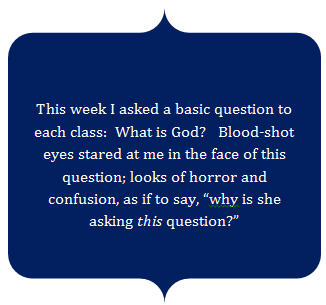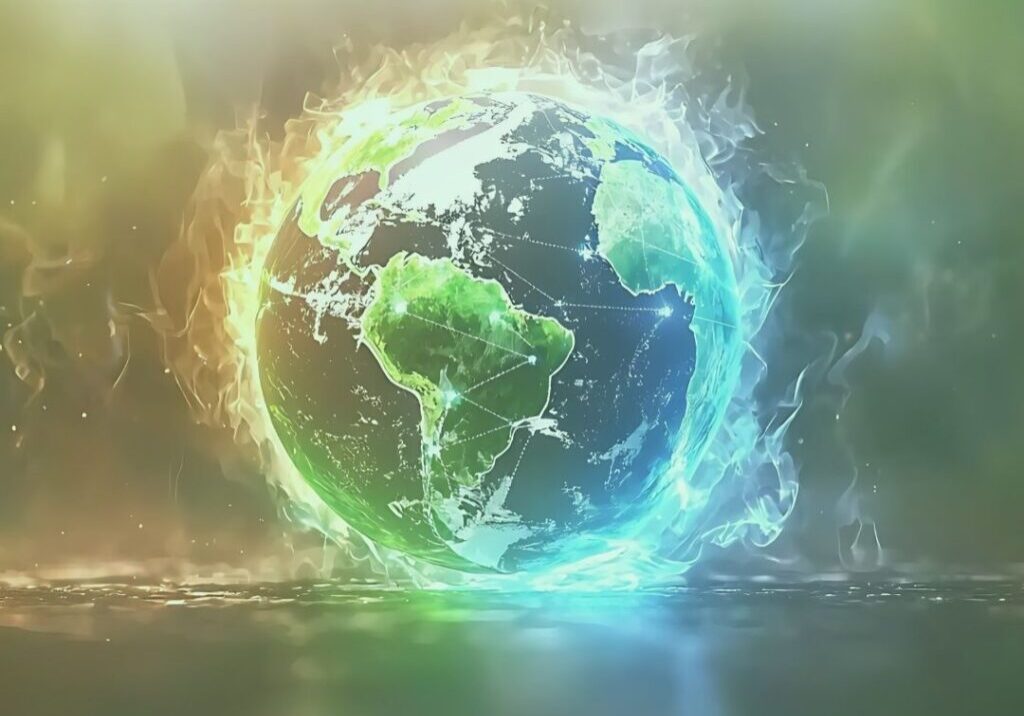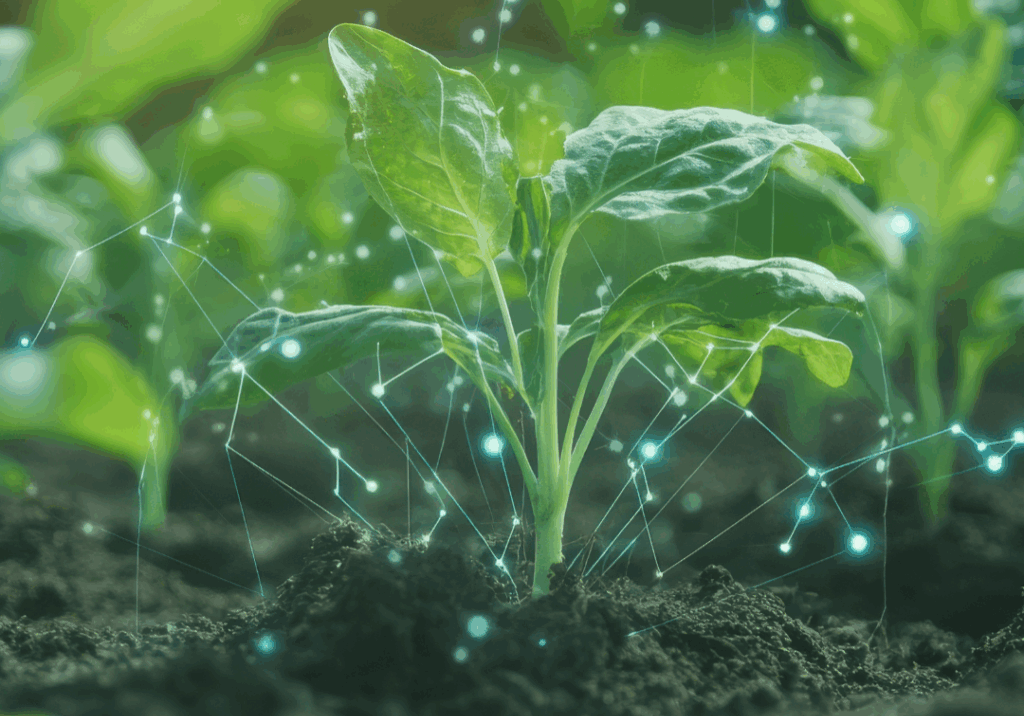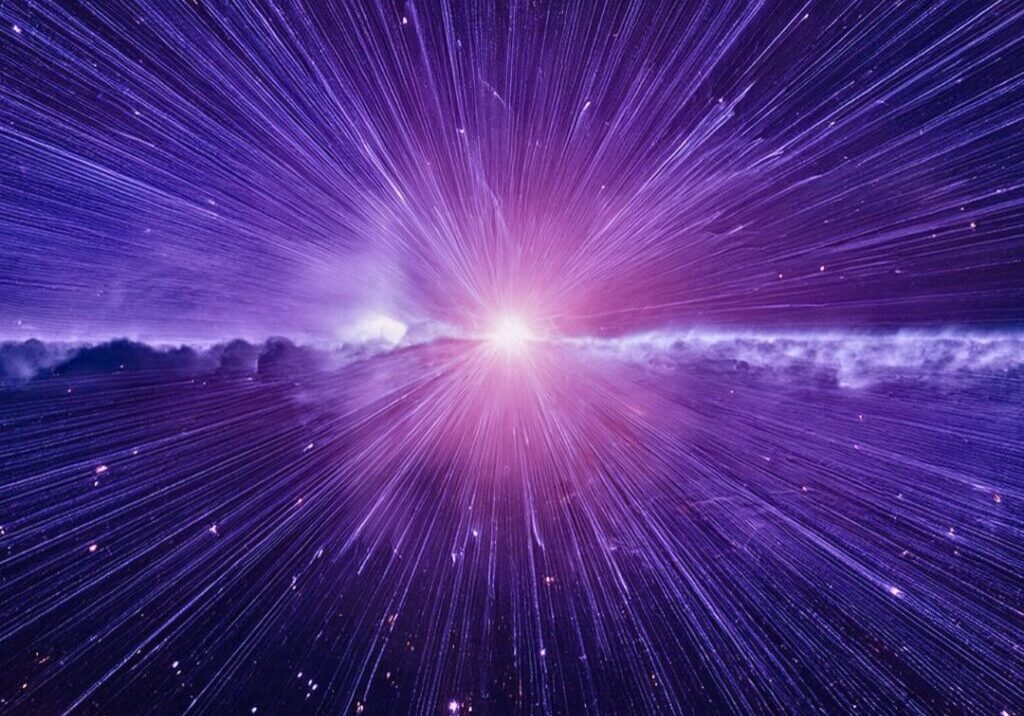What Is God?
I find myself these days frantically holding together the multiple pieces of life, from teaching to traveling and outside lecturing, from the Omega Center to community and the many emails that constantly enter to invade my extended cyber world. Last week I traveled ten thousand miles, from Philadelphia to Winnipeg CA through Toronto, back to Philadelphia to teach in the evening from 6 p.m. – 9 p.m. then on a plane to the University of Portland, back to DC to spend a weekend entertaining a Franciscan Sister from Chicago, and then back to Villanova to teach my evening classes. Needless to say I found myself exhausted this week from the endless demands I have allowed to claim my life.
I should not recount this to you were it not for the fact that my undergraduate students seem to suffer from the same modern malady of thinned time. As we approach the mid-term point, they are starting to whither from lack of sleep or nutrition or simply too many parties and not enough sleep.  My two classes this week focused on the question of “God and the New Science” and what I realized in each group is that this generation finds religion a difficult topic to think about. God is a novel idea but not much more is known beyond what grandma might have taught. About a third of each class is agnostic or mildly deist while a few who have grown up in religious households have a simplistic understanding of God. This week I asked a basic question to each class: What is God? Blood-shot eyes stared at me in the face of this question; looks of horror and confusion, as if to say, “why is she asking this question?” What I have come to realize is that our Gen Z students are highly adept at math and science but when it comes to thinking about God and religion, they are on the level of kindergarten. The marginalization of religion in our culture has had profound consequences on the depth dimension of our lives.
My two classes this week focused on the question of “God and the New Science” and what I realized in each group is that this generation finds religion a difficult topic to think about. God is a novel idea but not much more is known beyond what grandma might have taught. About a third of each class is agnostic or mildly deist while a few who have grown up in religious households have a simplistic understanding of God. This week I asked a basic question to each class: What is God? Blood-shot eyes stared at me in the face of this question; looks of horror and confusion, as if to say, “why is she asking this question?” What I have come to realize is that our Gen Z students are highly adept at math and science but when it comes to thinking about God and religion, they are on the level of kindergarten. The marginalization of religion in our culture has had profound consequences on the depth dimension of our lives.
As I ponder my own journey and my chronic condition of anorexic time, I wonder if the inability to reflect on God corresponds to the flattening out of our interior lives. Daily tethered to our electronic devices, we have become, as Nicholas Carr wrote, like “pancake people,” spread wide and thin over multiple terrains. Life has become like Mapquest; our attention is focused on how to get from here to there. Our interior landscapes are becoming two-dimensional, sketched along the lines of functionality and expediency. The ongoing challenge is, how much can I get done in the least amount of time? We are losing the depth dimension of human life, the God dimension, which is not found in the windowless world of the artificial device but in the iconic view of infinity that lies at the heart of reality.
In his masterful book What is God? John Haught lays out five aspects of thinking about God: depth, future, beauty, goodness, truth, and invites us to consider each of these in the sense of ultimacy. God is the name that points to the ultimate mystery deep within us, the mystery that Rudolph Otto called, the mysterium tremendens et fascinans, a mystery that is fascinating, alluring, and sometimes frightening. The ancient Greeks found themselves surrounded by this mystery in the form of the ancient gods, gods of wind and fire, gods which governed the heavens and earth. The Hebrews claimed one true God, the God of Israel, the God of covenant and fidelity, and Christians took the mystery of God one step further by putting a name and face to God in the person of Jesus of Nazareth. This mystery of God permeating the silent spaces of the universe has revealed itself on the level of the human person. Revelation is seeing the divine mystery for what it truly is—the depth, future, and beauty of created reality. Jesus spoke of vision repeatedly during his public ministry. What do you want, he asked the blind man Bartimeus? Lord, I want to see! I want to behold the real. Open your eyes then, Jesus says, and behold the light.
 The Gospel stories tell us over and over again that the God question is the human question. To ask what is God, is to ask what breathes fire into my life? What am I? Am I blind? Can I see and what do I see? Jesus shows that the infinite, transcendent One is infinitely near, so close that the lines between human and divine are often blurred. We cannot grasp this God of mystery but God grasps us in our infinite depth; for the mystery we name “God” is the mystery of our awakened consciousness to ultimate reality.
The Gospel stories tell us over and over again that the God question is the human question. To ask what is God, is to ask what breathes fire into my life? What am I? Am I blind? Can I see and what do I see? Jesus shows that the infinite, transcendent One is infinitely near, so close that the lines between human and divine are often blurred. We cannot grasp this God of mystery but God grasps us in our infinite depth; for the mystery we name “God” is the mystery of our awakened consciousness to ultimate reality.
Science tells us today that energy is the stuff of life. Matter and energy are interconvertible; particles can be separated far apart but they remain deeply connected. There is an undivided wholeness at the heart of cosmic life. To be alive is to live in the dynamic flow of energy. The ancient writer Gregory Palamas spoke of the energies of God, the divine mystery radiating throughout the cosmos through energies of love, truth and beauty. Is divine energy like created energy, a plurality of waves and particles? If God is energy then God must constantly exist as both the field of gravitational love and the particularity of existence. We humans are both particles and waves and it is quite possible that from all eternity we have been entangled with God in the wellspring of eternal love. Perhaps the name “God” is an act of human consciousness which collapses the divine wave into the particularity of my existence. By this I do not mean that God is a projection of myself but the entangled divine Self of myself in such a way that there is no “Thou” apart from the “I” and there is no “I” apart from the “Thou.” As the young French philosopher Simone Weil wrote, “whoever says ‘I’ lies.” Divinity and personal existence are entangled in a quantum dance of love.
The German philosopher Martin Heidegger spoke of God as an activity immanent in this world, a self-giving presence rather than a transcendent Creator God. In his view we are “immersed in a world of finite material things that we try to control for our own individual purposes but which in the end control us because we have lost perspective on how to deal with them in meaningful ways.” We accept without thinking the givenness of the world around us and most of the things within it. It takes an “emergency,” he wrote, a break in our everyday consciousness, to become aware of what is always already there awaiting our response. Even a critical, logical, and strictly scientific analysis of the human situation reveals the presence of something unconditional within the self and world. Rising up from human awareness of finitude is an awareness of the infinite. The background of everything that exists is another existence. God is not something that can be proved or disproved. God does merely exist nor is God a Being among beings. Rather, God is existence itself which means God can only appear in otherness, in that which exists. As Paul Tillich said: “God does not exist. . .except in the paradox of God becoming manifest under conditions of existence.”
This nearness and deep intimacy of God requires a breakthrough in consciousness to realize that divinity hides in our skin and in our bones. God is not above us; God is beneath us and within us—we do not find God as a suprasensible idea but as another ourself which dwells in and authenticates our darkness. Transcendence is not over us; rather we are, strangely, its privileged bearer.
I am reminded of a small piece written by a young Jesuit years ago on the nearness of God in the face of suffering. Faith, he said, is what brings us into the deepest truth that we are in the image of an unlimited, unrestricted, unimaginable love. This broken, anxious world is oozing with God. Amidst the chaos of uncontrolled disorder dwells the insatiable love of God, the strange attractor deep within us, breathing life through us, inviting us to surrender, trust, let go, and flow into the newness of love.
I suppose what I am discovering more and more is that God is the energy of love which cannot be contained or restrained by mechanical order. Rather God is most alive in chaos and disorder, where the controlled structures break down and the frenetic energy of dizzying speeds stifle our grip and propel us into the whirlwind of the moment; where we can do no other than yield to unpredictable moments of unfolding life.  Out of chaos, Nietszche said, a star is born.
Out of chaos, Nietszche said, a star is born.
When I stand still and pause in silence, even for a brief moment, I am aware, in deep consciousness, that God is bubbling up from within, this strange interplay of darkness and light amidst the worldly chaos of frenetic life. This divine mystery of love is drawing me toward an uncontrollable newness of life in the same way that the expanding universe is being driven by the energies of Love. I could not utter this thought were it not for the One who is beyond me, above me, within me, around me, the divine Heart upon which I lean in these anxious moments, the voice within who quietly says, “I am with you and I am creating you because I love you and I will love you through death into life because your life and my life are one life forever, bound in an endless love beyond your wildest dreams.”
 View print-friendly version
View print-friendly version
2 Comments
Related Posts

The Earth Groans, AI Grows: Who Guides the Flame?
In this critical moment of planetary history, where ecosystems collapse, artificial intelligence proliferates, and human meaning trembles on the edge of uncertainty, we are faced with a profound question: What kind…


Deep within, the essence which is God, propels us forward to be; to act and to love. From the development of the child within the womb to the intimacy of relationship, awareness is gift. Consciousness brings peace, hope and the courage to go on. We are all part of the tree of life deeply rooted on solid ground, branches grow, some wither and die, whilst others go on to bear much fruit. We don’t see the roots but know they are there nourishing us. So too the Spirit is within us. We have been blessed with knowledge and yet how do we use the grace we have been blessed with?
I often explain to people that there is only one life, not billions of separated lives on this planet, and the one life is God’s. It is a Divine Life and we are all expressions of that life, evolving through grace, transformed and moving to union if we become aware.